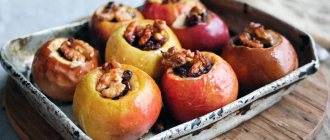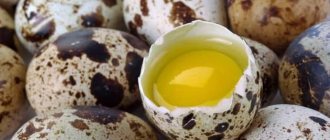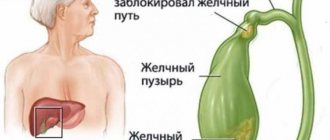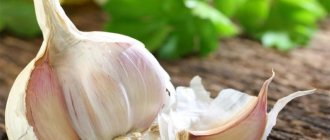How does onion affect the stomach?
Before becoming interested in the benefits or harm of a vegetable for gastritis, it is necessary to familiarize yourself with the physiology of the stomach.
The digestive process is a chain of chemical reactions. Once in the digestive tract, food is subjected to mechanical and chemical processing due to components of gastric juice that have chemical and enzymatic activity. The main component of gastric juice is hydrochloric acid. Onions for gastritis affect the parts of the mucous membrane of the digestive system. The cause of acid imbalance in the stomach cavity is sometimes food products. Onions are among the latter. The process occurs due to the content of a number of essential oils and phytoncides. The biologically active substances of the onion in its raw form irritate the gastric mucosa. The production of hydrochloric acid by the stomach glands and the level of acidity of gastric juice increases.
https://www.youtube.com/watch?v=b1OhKMV2Ut0
It happens that it is not possible to refuse a prohibited product. For example, when visiting or in a restaurant, when you don’t immediately realize that the salad or soup is richly flavored with onions. The stomach may react to a prohibited ingredient with pain, nausea, sour taste in the mouth, and heartburn.
Then you need to provide timely help to the stomach: take an antacid drug that reduces acidity and protects the walls of the stomach (Almagel, Gaviscon, Maalox). Medicines that suppress the secretion of hydrochloric acid - omez, pariet, nexium, ranitidine - can also help.
If the symptoms have not gone away completely, then treatment should be continued for several days, following a strict diet, and consult a specialist at the first opportunity.
Of course, raw and heat-treated onions differ in taste and are not a complete alternative to each other. The baked vegetable is also tasty, and most importantly, healthy - many important substances for the body are not destroyed when heated. You just need to look for original ways to prepare such a product and approach culinary experiments creatively.
Basic principles of nutrition
- The food consumed is served after reaching the optimal temperature, preferably warm; hot food, like cold food, irritates the mucous gastric epithelium. This becomes an unfavorable factor, the lining of the stomach is already inflamed and irritated due to gastritis.
- The food eaten during the day is divided into small, equal portions. Thus, a fractional diet is carried out, when there are 5 meals per day. It becomes easier for the stomach to process and digest systematically ingested food in small quantities. Remember an important point: dinner is taken 3 hours before bedtime.
- The patient eats at a set, constant time to ensure that the digestive organ works efficiently without stress.
- The menu of a sick person is varied. It is important that the body receives the required amount of proteins, carbohydrates and fats, vital vitamins and microelements.
- To preserve the nutritional elements of foods and to promote a minimal level of irritation of the gastric mucosa, dishes for the patient are prepared by steaming or boiling.
- It is recommended to chew food thoroughly to make the work of the diseased digestive organ easier.
- It is better to always eat in an upbeat mood; science has proven that negative emotions interfere with the efficiency of digestion.
Any diet developed for patients suffering from gastritis with high acidity will be rich and varied, since the list of allowed foods is wide. A sick person will not be accompanied by a feeling of constant hunger; sweets will certainly be included in the diet. If the menu is compiled correctly, it is possible to eliminate the signs of the disease and restore metabolism in the human body.
Separately, nutritional features for acute gastritis should be mentioned. A rigorous selection of possible products will be required. It is allowed to cook viscous porridges in water from cereals previously ground in a coffee grinder. If the patient wants an omelet, it is better to prepare the dish only from proteins. Soups are cooked without meat; chicken, a dietary product, is good for cutlets.
After a number of days, when the signs of exacerbation of the disease gradually subside, it will be possible to introduce meat and fish broth, milk and other healthy products into the patient’s individual menu - after examination and permission from a gastroenterologist.
The diet for chronic gastritis is recognized as mandatory for constant adherence, so as not to provoke too frequent exacerbations or cause complications. You need to eat right and lead a healthy lifestyle. The rule applies to everyone; anyone can get gastritis.
For most patients, diet No. 1 is prescribed, which excludes the consumption of foods that can increase the secretion of gastric juice. Food is prepared by steaming or boiling; fruits and vegetables are served in the form of puree.
A nutritionist develops an individual diet for the patient, in accordance with the course of the disease and the body’s resources. The doctor clearly indicates what a particular sick person can and cannot eat.
The right decision would be to draw up a sample menu for the week in advance, so that it is easier for the patient to navigate the allowed and prohibited dishes.
"Bow of the Seven Ailments"
This saying very accurately characterizes the healing effect of vegetables on the body. The positive effects of onions can be combined in a long list:
- wound healing;
- antiseptic effect;
- strengthening immune defense;
- reducing the severity of inflammation;
- stimulation of secretory and motor functions of the gastrointestinal tract;
- treatment of iron deficiency anemia;
- improving the functioning of the heart and blood vessels;
- reduction of cholesterol and glucose levels in the blood;
- therapy of skin diseases;
- diuretic effect;
- dilation of the bronchi.
Such a diverse effect on the human body is due to the content of high concentrations of vitamins (A, C, E), minerals (sulfur, iron, zinc, potassium, fluorine), phytoncides, and bioflavonoids.
However, there is still a fly in the ointment. Phytoncides and essential oils significantly irritate the gastric mucosa and stimulate the production of hydrochloric acid, so in case of diseases of the upper digestive tract, special care must be taken with onions. In addition, consuming vegetables in large quantities can negatively affect the condition of the kidneys and liver, so people with pathologies of these organs are advised to eat onions in doses.
Allowed dishes
- Stale pastries and bread, cookies, crackers.
- Boiled pasta, vermicelli.
- Porridges cooked in water are preferably viscous and enveloping.
- Various vegetable soups, possibly with the addition of cereals (for example, buckwheat soup). Puree soups are the best option.
- Boiled or steamed dishes from beef, chicken, liver, tongue.
- Eggs are allowed if they are cooked soft-boiled or as an omelet from a double boiler.
- Boiled fish, preferably lean.
- Selected types of vegetables and fruits in grated form. It is advisable to eat vegetables boiled or stewed.
- Non-acidic dairy products, milk, cottage cheese, low-fat fermented baked milk.
- Among the sweets that are acceptable for gastritis are marshmallows, a little honey, marshmallows, marmalade, and jam.
- It is advisable to drink weak black tea and coffee, diluting it with milk or low-fat cream, cocoa, juices from permitted fruits and berries.
- The diet should include oils: olive, sunflower, corn, butter, just a little.
As for forbidden dishes, remember, the main goal is to reduce the level of hydrochloric acid production. This means that foods that increase the secretion of acid in the stomach should be excluded from the diet.
Is it allowed to eat green onions if you have gastritis?
We asked a practicing gastroenterologist whether it is possible to eat onions with gastritis; we posted her answer below.
Expert opinion
Irina Vasilievna
Practicing gastroenterologist
The digestive process is carried out with the participation of gastric juice, consisting mostly of hydrochloric (hydrochloric) acid. Some products, including onions,
may irritate the stomach wall
, which leads to an increase in the concentration of digestive juice.
The consequence of this is inflammation of the mucous membrane lining the stomach from the inside. That is why gastroenterologists recommend that patients with gastritis or ulcers include onions in their diet with great caution.
If you have high acidity, it is NOT RECOMMENDED to consume any raw onions.
If gastritis occurs with reduced secretion of gastric juice, the product should be consumed with caution, and if the disease worsens, it will have to be abandoned.
Under the usual name “onion” (in fact, onion is a whole genus of plants from the Amaryllis family) hides many varieties that differ not only in appearance, but also in taste. As you know, there are sweet and spicy varieties. The latter contain a larger amount of glycosides, which give bitterness.
- For stomach diseases, such as ulcers or gastritis, preference should be given to a vegetable of an unconventional color, purple or red.
- But white and yellow are not recommended to be consumed raw.
The most widespread in our country is onion, which is grown almost everywhere, but even it is not limited to one species. In the garden beds you can find white, red, and sweet varieties. They differ in taste characteristics, as well as the concentration of vitamins and microelements. Other cultivated varieties of onions include green onions, leeks, and shallots.
There are also perennial plants - batun, chives, multi-tiered. Some species can be grown in the far north. Wild vegetables are also of interest: Rosenbach and Regel onions, wild garlic (flask).
In fact, all the rules of use described above are valid for the entire large onion family, since all of the listed varieties contain the same chemical components, and differ only in their ratio. For example, green onions contain more mineral salts than onions. Chives have a high concentration of ascorbic acid, and wild garlic has a high concentration of vitamin A.
Therefore, the onion variety for gastritis can be chosen according to taste preferences and medicinal properties, but remember that in its raw form the vegetable is allowed only at low acidity levels, and even then in very moderate quantities.
Let's take a closer look at the topic of eating green onions for gastritis.
About the benefits of the product
The stems of the green plant contain ascorbic acid and vitamin A. The substances stimulate the immune system. Green onions are useful for a significant number of diseases. The product contains vitamins K and E, which are responsible for hair growth and normalize the condition of the skin and nails.
The part of the plant that is closer to the root is more useful. Desirable properties of the product include improved appetite and food absorption. Eating onions is useful for chronic fatigue and vitamin deficiency.
Along with useful substances, the stems of the green plant contain many substances that irritate the mucous membrane. In a person suffering from gastritis, the gastric mucosa is subject to negative effects; in the acute stage of gastritis, eating fresh green onions and garlic is strictly not recommended.
Green onions, entering the stomach of a patient with gastritis, release irritating substances and cause the patient a feeling of burning pain in the epigastrium. With the permission of a doctor, it is allowed to eat small amounts of these vegetables in the subacute stage and in remission.
Contraindications
The vegetable is contraindicated in the following conditions:
- gastritis with increased concentration of hydrochloric acid in the stomach;
- peptic ulcer of the stomach and duodenum;
- acute and chronic pancreatitis;
- acute and chronic cholecystitis.
Is it permissible to eat fresh green onions and onions?
The vegetable is characterized by both positive and negative properties regarding the gastrointestinal tract. An unequivocal ban applies to the consumption of fresh onions of any variety and type, especially for gastritis with high acidity. The bulb contains substances that stimulate the production of hydrochloric acid, irritating the walls of the stomach, and this causes burning pain in the epigastrium. Only small quantities of the vegetable and only after heat treatment are allowed to be consumed during the remission stage or in the subacute phase of gastritis.
Is it possible to eat raw vegetables?
Any irritating substances are prohibited in acute forms of inflammation, when a gentle diet is prescribed. For atrophic gastritis, raw onions are also unsafe. The atrophied mucosa is very sensitive and reacts more strongly to the effects of phytoncides by increasing the inflammatory reaction.
Against the background of increased acidity and erosive gastritis, stimulation of the secretion of acidic gastric juice will only aggravate the situation and expand the area of damage.
The only variant of gastritis in which you can afford raw onions in moderation is hypoacid. The increased secretion of hydrochloric acid will bring the pH of the gastric contents to average values, and a normally functioning protective barrier will not allow essential oils to provoke irritation.
Onions after heat treatment
Onions are used as food and boiled. Boiled onions are included in first courses and act as a component in meat and fish dishes, and in salads. It is allowed to be added to food if raw onions are contraindicated for a person with gastritis.
If the product is subjected to long-term heat treatment, it will lose some of its beneficial qualities. A few minutes of heat treatment is enough. In some cases, they limit themselves to simply scalding the onion with boiling water.
Fried onion
If you have gastritis, eating fried vegetables is not recommended. It negatively affects the stomach and worsens the patient's condition in the acute stage.
Baked onion
A healthy side dish is baked onions. The product is indicated for gastritis, treats damaged mucous membrane of the stomach and duodenum
Let's learn about the benefits of boiled vegetables:
- Boiled onions contain a complex of vitamins and microelements C, A, E. The substances stabilize metabolic processes in the body.
- Eating boiled onions improves the composition of blood cells and hematopoietic organs.
- The baked or boiled product contains natural enzymes that have a beneficial effect on the functions of the endocrine system, digestive organs and nerves.
- The plant product contains carbohydrates that are easily digested and provide complete nutrition for the brain, liver, and heart muscle.
- The substances contained in boiled vegetables normalize the acid balance.
- Boiled onions are rich in silicon, iodine and potassium.
- Plant phytoncides have a pronounced antimicrobial and antifungal effect.
- Quercetin in onion peels has a pronounced immunostimulating and anti-inflammatory effect.
People with gastritis are advised to consume boiled onions so as not to damage the irritated stomach and speed up treatment.
Side effects and contraindications
For all its usefulness, fresh onions are a product of pungent taste. Eating this vegetable in its natural form is not recommended for people with gastrointestinal diseases of any etiology . For gastritis in the acute stage, it is better to avoid raw onions in the menu, replacing them with boiled or baked ones.
Hypertensive patients should also treat onions with caution, since vegetables consumed in large quantities raise blood pressure . The strong onion smell can trigger an asthma attack.
Supporters of unconventional methods of treatment should be aware that prolonged contact of fresh onion juice with the mucous membrane can cause a burn.
How to avoid exacerbation
To top it off, here are a few tips on how to avoid attacks of pain and heartburn with gastritis:
- You need to eat in small portions, with an interval of 2.5-3 hours.
- Food should not be too cold or hot.
- It is better to completely avoid spicy, fried and fatty foods until recovery.
- Coarse fiber injures the walls of the stomach. Food should have a soft, enveloping consistency.
- Alcohol consumption, even light alcohol, is kept to a minimum. The norm is 20-30 ml in terms of alcohol.
- Nicotine consumption can lead to ulcers or gastrointestinal cancer.
- Taking any medications, including regular aspirin or painkillers, should be agreed with your doctor.
For gastritis, any diets other than those approved by the treating doctor are contraindicated. A balance should be maintained between carbohydrate and protein intake . A preponderance towards the latter will lead to a loss of strength and a decrease in mood.
Gastritis has become one of the most common diseases in the modern world. More than half of all inhabitants of the planet suffer from it. The disease is insidious and inconvenient because it requires special care about nutrition and lifestyle, which involves eating according to a certain pattern and choosing specific foods.
Dishes without onions are rare; they are a popular and sought-after product. Soups, main courses, salads, and pies are baked with this tasty and healthy vegetable.
Is it possible to eat onions if you have gastritis? How to choose a method of preparing it so as not to harm it? The questions are serious and require answers.
How to cook
There are many ways to prepare onion dishes. You just need to choose the most appropriate one for a particular type of gastritis. Boiled and stewed vegetables retain not only most of their medicinal properties, but also their ability to irritate the walls of the stomach. True, to a lesser extent than raw, so in hyperacid conditions it can be consumed in small quantities. But with severe atrophy or extensive erosion, it is not worth the risk.
Fried onions should be excluded from the diet for patients with any form of stomach inflammation. Increased fat content and the appearance of carcinogens in fried foods are not good for anyone.
But a baked onion is the most harmless delicacy. This product is approved for gastritis of all types. Interestingly, most of the irritating components are inactivated when baked, and the anti-inflammatory and antibacterial effects are preserved - such onions will even be useful.
Patients with gastritis should also not pickle onions. Adding vinegar, salt and hot spices will only enhance the negative effect. Drying the vegetable will also not make it safer for the inflamed gastric mucosa; dried onions are allowed only for hypoacid forms of the disease.
Many people freeze onions to cook later. This option is quite possible if you follow a few recommendations:
- Before freezing, the vegetable needs to be cooked for about 5 minutes to destroy microbes, many of which are resistant to low temperatures.
- You need to let the water drain well so as not to freeze excess liquid.
- After the water stops draining, the onions are packaged in special freezer bags and placed in the freezer.
- Thawed onions can be further prepared according to the same rules as fresh ones.
Many traditional onion dishes are prohibited for patients with gastritis. For example, traditional onion soup, which contains a large amount of butter that is difficult to digest, or fried pies with onions and eggs, like any other dish that requires frying.
Contraindications
It is forbidden to eat it fresh during an exacerbation of any type of gastritis. In baked or boiled form, it can be present in the diet during this phase of the disease, but only after the first improvements in the composition of some broths. It should be prepared without the use of various spices, vinegar and salt - they irritate the walls of the stomach and contribute to the development of inflammation. A large number of them can lead to an exacerbation of the disease.
You should not eat large amounts of raw onions if you have gastritis with low acidity. Including this vegetable in the diet without pre-processing has other contraindications:
- kidney dysfunction;
- diseases of the cardiovascular system (heart failure);
- unstable blood pressure;
- diseases of the digestive system (pancreatitis, gastric and duodenal ulcers, cholecystitis, gastroduodenitis).
Only a doctor can determine whether onions can be consumed for gastritis and other diseases. His decision is based on the severity of the disease, the patient’s age and his individual characteristics. Rarely, the use of this vegetable is prohibited at all stages of the disease.
You should not eat fried, salted, smoked or pickled onions - as they negatively affect the stomach and other digestive organs.
Onion composition
The pungent taste and pungent aroma of onions is due to the presence of essential oils in its composition. It contains vitamin C, more of it than oranges. In addition, onions contain folic acid, retinol, tocopherol, B vitamins, and minerals.
The composition of onions includes microelements such as:
- zinc,
- sulfur,
- potassium,
- iodine,
- fluorine,
- iron,
- phosphorus.
The protein component is represented by eighteen types of amino acids. In addition, the vegetable contains natural sugars (fructose, inulin, glucose), pectins, saponins, flavonoids (quercetin).
Unusual recipes for the diet menu
We will present several original recipes for baked onions, since this is what is allowed for all patients with inflammation of the stomach, regardless of its type.
Ingredients:
- 2 medium young zucchini;
- 600 g chicken fillet;
- 1 small bunch of wild garlic;
- 1 onion;
- 1 carrot;
- 2 tbsp. l. olive oil;
- salt to taste.
Action plan:
- Cut the wild garlic into thin pieces.
- Finely dice the onion, grate the carrots and add salt.
- We simmer them with the addition of 1 tbsp. l. olive oil until the juice evaporates.
- Cut the chicken into thin pieces and beat them.
- Place the chops on cling film in a rectangle, slightly overlapping, and add salt.
- Place wild garlic on top, leaving 2-3 cm from the edge.
- Place zucchini cubes, carrots and onions on top.
- Using film we form a roll.
- Cut the second zucchini into very thin long strips.
- Grease a narrow baking dish with olive oil and lay out the zucchini slices overlapping each other.
- Place the roll freed from the film on top and cover it with the free ends of the zucchini strips, grease with oil.
- Bake for about an hour at 180 degrees.
Stuffed onions
Ingredients:
- 1 kg minced beef;
- 1 egg;
- 11 onions;
- 50 g rice;
- 1 cup low-fat sour cream;
- salt to taste;
- 2 tbsp. l. olive oil.
Action plan:
- Wash the rice and soak it in warm water for a quarter of an hour.
- We clean the onion, cutting off the bottoms evenly, removing the middle from it, leaving 2 top layers.
- Finely chop or grind the middle parts of the onions in a blender.
- Mix them with minced meat, add egg, swollen rice, and salt.
- Fill the bulbs with filling.
- Grease a baking dish with olive oil, place stuffed onions on it, add a little sour cream on top.
- Cover the bulbs with foil and cook for about an hour and a half at 180 degrees.
The aroma of onions and its pleasant taste add sophistication to even simple dishes. Here are several original food recipes that will decorate not only the everyday menu, but also the festive feast.
To prepare the dish you will need:
- onion - 6 large heads,
- oyster mushroom – 150 g,
- sunflower oil 30 ml,
- minced meat 250 g,
- soy sauce 100 ml,
- egg 1 piece.
In the original recipe, the minced meat is first fried. It is better to skip this stage, because your stomach with gastritis will not like it. Finely chop the mushrooms, mix with minced meat and egg. Stuff the onions, first removing the core. Pour a little soy sauce into the center for taste. Bake in the oven until a crust forms, this takes 30 minutes at 180 degrees.
Video instructions with a detailed description of preparation.
Boiled meat, baked fish or chicken breast... the bland taste of dietary dishes is not pleasing. Serve them with the right sauce. To prepare onion gravy, you will need:
- half a glass of cream 20%,
- a couple of sweet onions,
- cow's butter 2 tbsp. l.,
- flour 1 tbsp. l.,
- oregano, dill and dried basil.
Boil the onion and grind it into a puree. Heat the cream, thicken with flour, beat with butter. Add salt to taste, mix with onions, season with herbs.
Onion jam
This unusual recipe has nothing to do with desserts. Onion jam is a therapeutic dish. They treat gastritis, ulcers and old coughs. There are two options for preparing the drug:
- In the first, the onion is boiled and chopped, then mixed with honey. All components are taken in a 1:1 ratio.
- The second method involves adding sugar. The finely chopped vegetable is left until the juice is released. After this, add granulated sugar (1 kg per kilogram of onion) and boil to the desired consistency, about 2 hours.
For clarity, we found a couple of videos, we recommend watching them.
The second recipe will allow you to use jam as an additive to dishes.
Medicinal recipes with onions
In the fight against stomach pain, they try folk recipes based on herbs, oils, decoctions, and cereals. There are also medicinal recipes based on onions.
Important! Check with your gastroenterologist to see if a specific prescription is right for you.
For gastritis with high acidity
Recipe 1:
- You will need 3 tbsp. l. onion peel infusion, 3 tbsp. l. honey
- Honey is dissolved in a warm infusion.
- Take 3 times a day 1.5 hours before meals. The course is 1.5-2 months.
Recipe 2:
- You will need 2 tbsp. l. infusion of onion peel, 100 g of aloe juice, squeezed from juicy leaves, 100 g of honey.
- Mix everything, take 1 tsp. 3 times a day before meals. Course - 3 weeks.
Recipe 3:
- You will need June greens of onions, garlic, turnip tops, beets and carrots.
- Grind all ingredients with a small amount of salt and season with vegetable oil.
- Serve as a salad for lunch for 3 weeks.
With reduced
Recipe 1:
- You will need 200 g of onion peels, 200 g of plantain leaves.
- The husks and plantain are crushed, pour 1 tbsp. boiling water
- Keep on low heat for 5 minutes.
- Cool, filter, drink 1 tbsp. l. in the morning on an empty stomach. Take until acute pain disappears.
Onion soup recipe:
- You will need 3 potatoes, 1 carrot, 400 ml of milk, 100 g of hard cheese, 1 large and 6 medium-sized onions, vegetable oil.
- Peel a large onion and simmer with vegetable oil and water (1:1).
- 6 onions, potatoes and carrots are finely chopped and poured into a pan with salted boiling water.
- Add the poached onion and cook until the potatoes are ready.
- After cooking, add milk and grated cheese.
- Bring to a boil, but do not boil, cover with a lid, leave for 30 minutes. This soup relieves spasms in gastritis with low acidity. They eat it when they notice the appearance of characteristic pain.
For ulcers
Recipe 1:
- You will need 2-4 bulbs.
- Steam the onion or bake in the oven.
- Eat 50-100 g 1-2 times a day 10 minutes before meals for 2-3 weeks. After 10 days the course is repeated.
Onion jam recipe:
- You will need onions and sugar in equal proportions.
- The onion is peeled and chopped into cubes or strips.
- Boil onion and sugar for 5-7 minutes over medium heat (ingredient ratio 1:4).
- Add chopped onion to the syrup and cook until the liquid has completely evaporated. The mass should become thick.
- Pour into glass jars, cover with lids and store in the refrigerator.
- Take 1 tbsp on an empty stomach. l. half an hour before meals.
Beneficial features
Alternative medicine recommends the vegetable as a proven antiseptic, anti-burn, tonic and general strengthening agent. The iron it contains relieves anemia, vitamins C and E strengthen blood vessels and regulate the process of cell regeneration, potassium helps improve heart function and maintains water-salt balance.
The vegetable provides the daily intake of ascorbic acid and has a beneficial effect on the functioning of the thyroid gland and liver. Green onion juice contains carotene, which is rightly called the source of eternal youth.
- Onions lower blood sugar levels, so doctors advise including them in the diet for type 2 diabetes.
- The vegetable is also useful for hypotensive patients as a tonic.
- It is recommended to include various types of onions in the menu for people suffering from nervous disorders and insomnia.









